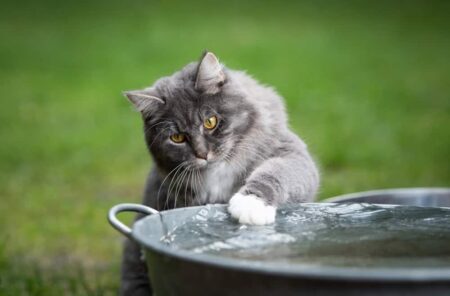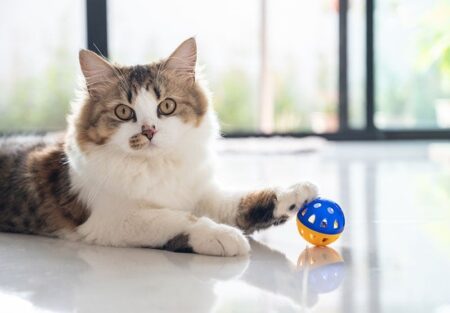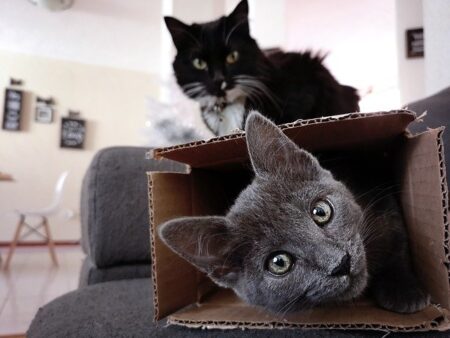With the revelation that home cats and large cats can contract the novel coronavirus and turn out to be sickened by COVID-19, cat mother and father are involved. However strive to not fear, simply keep the course and embrace your cats within the COVID-19 security precautions you’re already practising. Additionally know, the an infection charges of COVID-19 in cats could be very small.
And, the 2 most vital issues to recollect relating to cats and COVID-19:
- In case your cat reveals signs of sickness, contact your veterinarian.
- By no means abandon or surrender your cats.
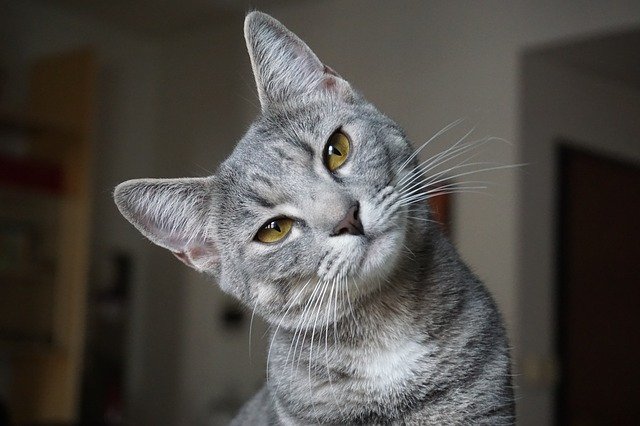
The Bronx Zoo Tigers and Lions
Nadia, a four-year-old Malayan tiger on the Bronx Zoo in New York Metropolis, NY, examined optimistic for COVID-19 in early April, making her the primary animal within the U.S. to check optimistic. The tiger began displaying signs of COVID-19 on March twenty seventh, displaying a dry cough and lack of urge for food. When the signs developed, the Wildlife Conservation Society, the group working the Bronx Zoo, determined to check Nadia out of precaution. The outcomes have been “confirmed by USDA’s Nationwide Veterinary Providers Laboratory,” in response to a press release by the WCS.
Dr. Summer time McGee, head of the College of Well being Sciences on the College of New Haven, experiences, “Cats, together with large cats, are recognized to be inclined to coronaviruses, and it seems COVID-19 is not any exception.”
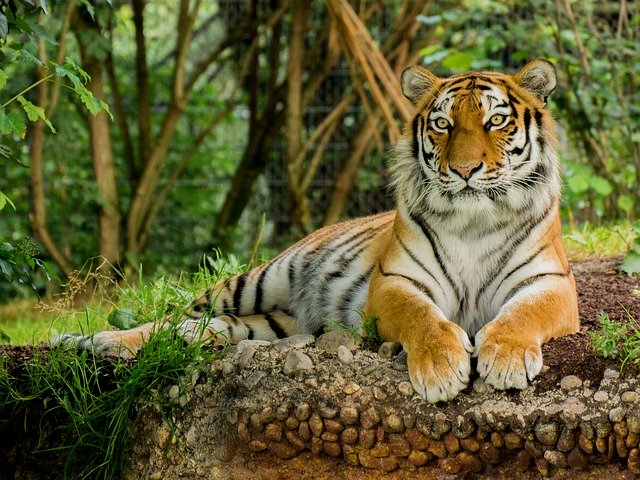
Zoo administration can solely guess the place Nadia picked up the sickness, however theories recommend a handler was most likely an asymptomatic service or had not but developed signs and transmitted the virus to her. This type of human to animal transmission is a uncommon prevalence although.
Sadly, since Nadia’s an infection, seven different large cats on the Bronx Zoo have now examined optimistic for COVID-19 as properly.
Nadia’s sister, Azul, in addition to one other tiger and three African lions have skilled sickness signs. A fourth tiger by no means displayed any signs, but nonetheless examined optimistic.
Concerning the situation of cats, the WCS reported, “Although they’ve skilled some lower in urge for food, the cats on the Bronx Zoo are in any other case doing properly underneath veterinary care and are brilliant, alert, and interactive with their keepers.”
Because the weeks have handed, the sick tigers and lions are doing properly. An up to date assertion from the WCS introduced, “They’re behaving usually, consuming properly, and their coughing is significantly lowered.”
Employees expects full recoveries by all eight large cats. The WCS additionally shared, “Not one of the zoo’s snow leopards, cheetahs, clouded leopard, Amur leopard, puma or serval are displaying any indicators of sickness.”
The Bronx Zoo has put security measures in place to restrict contact between workers and the massive cats whereas nonetheless sustaining the standard care of the animals.
The American and Belgian Home Cats
In late March, information broke from Belgium relating to a companion cat testing optimistic for COVID-19. The cat was uncovered to a COVID-19 optimistic member of the family and, quickly after, started displaying signs of COVID-19. The Belgian authorities confirmed this to be true. The home cat’s signs have been reported as vomiting, diarrhea, and respiratory points. Officers mentioned the cat recovered after 9 days of sickness.
And now, latest days have introduced information of two American home cats contracting COVID-19. On April 22, the CDC confirmed two American cats examined optimistic for COVID-19 after struggling “gentle respiratory sickness”. Each felines “are anticipated to make a full restoration.”
Each contaminated cats stay in New York state, however in numerous areas of the state. These two circumstances are under no circumstances associated.
Within the case of the primary cat, the CDC reported, “No people within the family have been confirmed to be unwell with COVID-19. The virus might have been transmitted to this cat by mildly unwell or asymptomatic family members or by way of contact with an contaminated particular person outdoors its residence.”
An infection within the second cat occurred after publicity to a human member of the family who had examined optimistic for COVID-19. The CDC additionally commented, “One other cat within the family has proven no indicators of sickness.”
In each circumstances, the home cats have been believed to be contaminated by a human.
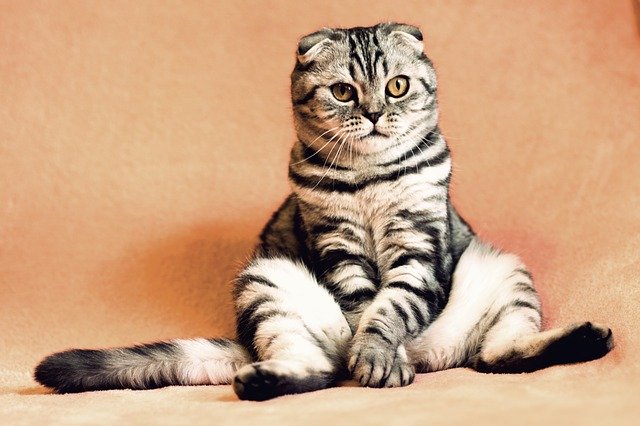
Now that we’re conscious cats could be contaminated by this newest coronavirus, it’s time to stay knowledgeable and do every little thing doable to guard our felines from sickness. To raised perceive the scenario, let’s outline the phrases coronavirus and COVID-19 in addition to study any questions you might need relating to cats and COVID-19.
Coronavirus and Covid-19, Completely different Phrases, Associated Definitions
Let’s clarify these phrases and the way they differ and relate.
Coronavirus
The CDC tells us, “Coronaviruses are a big household of viruses which might be widespread in folks and many various species of animals, together with camels, cattle, cats, and bats.”
In people, coronavirus infections trigger higher respiratory sicknesses just like the widespread chilly or pneumonia. On the subject of cats, felines sometimes contract various kinds of coronaviruses than people, one among them often known as Feline Coronavirus or (FCoV). And ShelterMedicine.com plainly states, “Feline Coronavirus will not be the identical coronavirus that’s the reason for COVID-19 sickness in people.”
However as we now have discovered in latest weeks, people and cats can each be contaminated and sickened by this newest coronavirus, recognized scientifically as SARS-CoV-2.
COVID-19
The WHO explains, “Viruses, and the illnesses they trigger, usually have totally different names.” Within the case of the coronavirus afflicting the globe at the moment, SARS-CoV-2 is the identify of the actual coronavirus that causes the sickness COVID-19.
Meriam Webster defines COVID-19 as: “a light to extreme respiratory sickness that’s brought on by a coronavirus (Extreme acute respiratory syndrome coronavirus 2 of the genus Betacoronavirus), is transmitted mainly by contact with infectious materials (equivalent to respiratory droplets), and is characterised particularly by fever, cough, and shortness of breath and should progress to pneumonia and respiratory failure
NOTE: COVID-19 was first recognized in Wuhan, China in December 2019.”
So, boiled down…a coronavirus is one among many viruses that trigger respiratory sicknesses and COVID-19 is an sickness brought on by a coronavirus referred to as SARS-CoV-2.
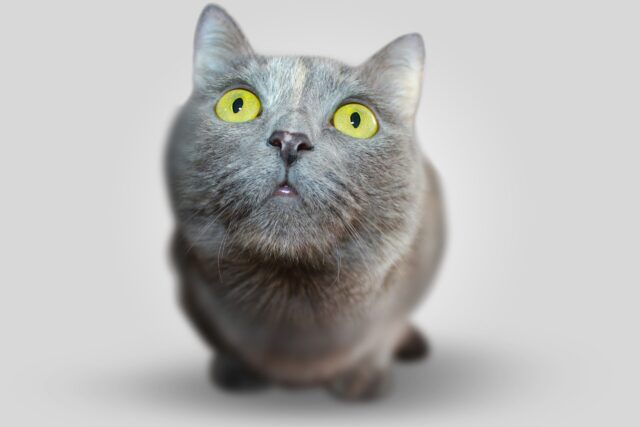
Your Questions Concerning Cats and COVID-19
Can cats get COVID-19?
Sure. We have now discovered the SARS-CoV-2 coronavirus can infect cats. As soon as contaminated, cats can fall unwell with COVID-19.
With signs equivalent to dry cough and lack of urge for food, Nadia the tiger and the opposite Bronx Zoo large cats have confirmed this data to be true. The home cats in New York displayed respiratory signs and the Belgian cat appeared to have extra extreme COVID-19 signs with diarrhea and vomiting accompanying the respiratory points.
However what similarities between cats and people permits for a selected virus to contaminate each species?
For an interview with LiveScience.com, Steven Van Gucht, virologist and coronavirus spokesperson for Belgium defined, “Cats and people seem to have an analogous ‘doorknob’ on the surfaces of respiratory cells that lets the SARS-CoV-2 virus get inside”.
This “doorknob” is definitely referred to as ACE2 and it’s a protein receptor on the surface of respiratory cells. The ACE2 receptor is the place the coronavirus attaches after which invades the cells. And Van Gucht mentioned, “The feline ACE2 protein resembles the human ACE2 homologue,” that means a similarity within the bodily construct of our cells permits each cats and folks to be contaminated by SARS-CoV-2.
Can folks infect cats with COVID-19?
People can infect cats with COVID-19 as we’ve discovered by the Bronx Zoo large cats and the Belgian housecat.
In a examine supported by the Nationwide Key R&D Program of China, a staff of researchers very lately discovered cats and ferrets are inclined to SARS-CoV-2 infections. The staff reported, “SARS-CoV-2 replicates poorly in canine, pigs, chickens, and geese, however ferrets and cats are permissive to an infection. We discovered experimentally that cats are inclined to airborne an infection.”
Whereas cats could be contaminated by people, the transmission from particular person to cat is a uncommon prevalence. However, it’s nonetheless a good suggestion to maintain your cat socially distanced from others in the mean time. You should definitely maintain cats away from any particular person or different cat that has been uncovered to SARS-CoV-2 or fallen unwell with COVID-19.
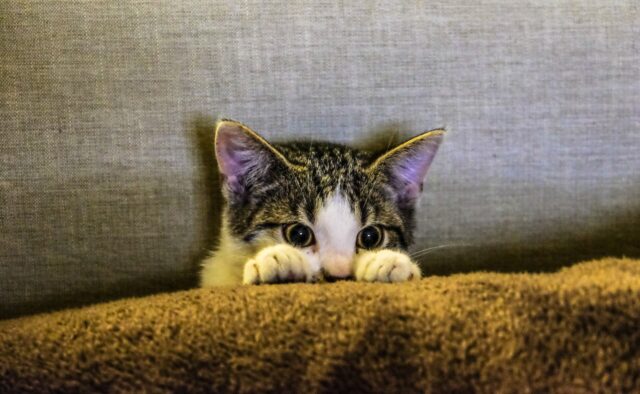
Can cats infect people with the coronavirus that causes COVID-19?
Thus far, no. There have been no experiences of an individual turning into unwell with COVID-19 due to an infection by a cat.
“The mode of transmission seems to be a technique—human to cat—and there’s no proof but of transmission the opposite manner,” in response to Dr. McGee.
“Even so, the CDC is recommending COVID-19-positive sufferers isolate from home cats as we don’t but know the well being penalties for our pets, nor do we all know completely that they aren’t asymptomatic carriers.”
Can cats infect one another with COVID-19?
Within the cat world, there are specific coronaviruses that afflict solely cats and these viruses could be transmitted between them. Whereas SARS-CoV-2 first transmitted to cats from people, latest analysis reveals, as soon as a cat has been contaminated with this novel coronavirus, the affected cat can then unfold SARS-CoV-2 to different cats.
As reported by The Guardian, a staff of scientists in China have discovered cats can unfold the virus to one another. However their experiment uncovered cats to a big quantity of SARS-CoV-2 in an effort to induce an infection. Certainly, wholesome cats uncovered to contaminated cats did choose up the virus, with one displaying signs of COVID-19 whereas others didn’t.
So, whereas this does show the transmission of SARS-CoV-2 is feasible between cats, the experiment was not a real-world setting. Doubtless, cats won’t be uncovered to an enormous dose of the virus of their houses. Nonetheless, observe warning and maintain cats separated if one cat shows sickness.
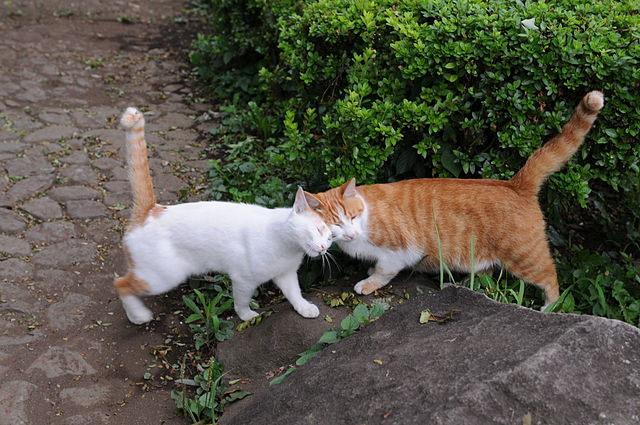
What provides ought to I’ve on-hand for my cat?
As you top off on provides for you and your loved ones, don’t neglect the furry members of the family. You should definitely have sufficient meals and litter available for two – 4 weeks. In case your cat takes drugs, make certain you buy a month-long provide of these too. Don’t let your cat run out of life-saving prescriptions!
Additionally, maintain identification tags and vet data helpful. Having a cat service on the prepared can be a good suggestion. VeterinaryPracticeNews.com suggests having this stuff, together with meals and medicines, already ready in case you get sick and also you want them available to your cat’s caretaker.
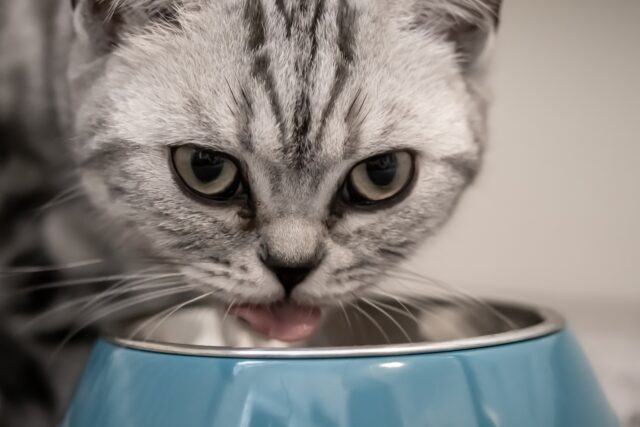
Ought to I bathe my cat to assist keep away from COVID-19?
We’ve lately discovered “the virus that causes coronavirus illness 2019 (COVID-19) is steady for a number of hours to days in aerosols and on surfaces,” in response to the Nationwide Institutes of Well being. So, in case your cat has are available contact with somebody contaminated by COVID-19, then a shower could be a good suggestion to guard the each of you.
To keep away from having to wash a cat who doesn’t like baths, prohibit guests in your house.
Can I take my cat to the vet?
Postpone wellness visits for annual vaccinations and workups till the menace from COVID-19 subsides. The much less you allow your house, the decrease the chance of contracting COVID-19. However, in case your cat is experiencing a medical emergency, then contact your vet and proceed with their instruction.
What if my cat has COVID-19 signs?
Contact your vet in you believe you studied any sickness in your cat.
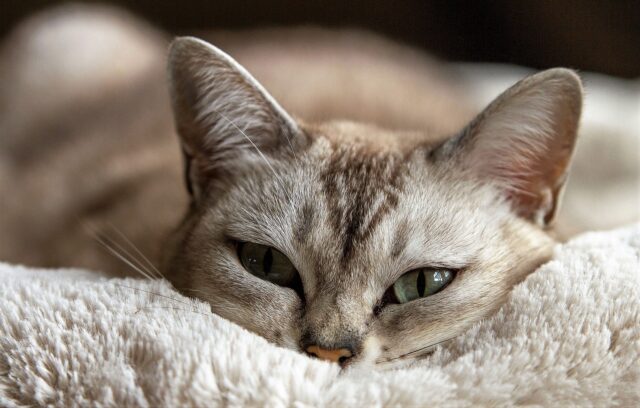
The CDC recommends the next pointers relating to cats and COVID-19:
- Don’t permit your furry members of the family to work together with folks or different animals outdoors the family.
- Preserve cats inside when doable to stop them from interacting with different animals or folks.
- If you happen to turn out to be unwell with COVID-19, whether or not suspected or confirmed, keep away from contact along with your cats and different animals.
If you’re unwell, the CDC suggests:
- When doable, have one other member of your family care to your cats and different companion animals.
- Keep away from contact along with your animals. This consists of petting, snuggling, kissing, and sharing meals or bedding.
- When you have no different alternative and you’re the just one to care to your cat when you’re unwell, put on a masks and wash arms earlier than and after interacting.
Preserve Your Cat Secure Whereas You’re Disinfecting Your House
On this time of deep cleansing and disinfecting, be sure you maintain your cats protected from dangerous chemical compounds. And when you’re cleansing like loopy, be sure you wash meals and water bowls. Disinfect beds and blankets as properly. You should definitely maintain everybody protected and wholesome by holding chemical compounds out of cat paws.
If a poison emergency does come up, contact ASPCA’s Animal Poison Management.
ASPCA Animal Poison Management Heart Cellphone Quantity: (888) 426-4435
Getting By Making an attempt Instances with Your Cat Bestie at Your Facet
We could also be caught at residence for some time, however there’s a brilliant aspect. Your cat! Cross the hours with plenty of enjoyable stuff you and your cat can do collectively!
And please bear in mind this above all else…by no means abandon your cat! In these instances of uncertainty, our cats want us greater than ever. Preserve you and your furry ones protected by heeding quarantine notices and authorities mandates. Additionally know, you’re not alone. We’re all on this collectively.
Function Picture: www.cdc.gov





